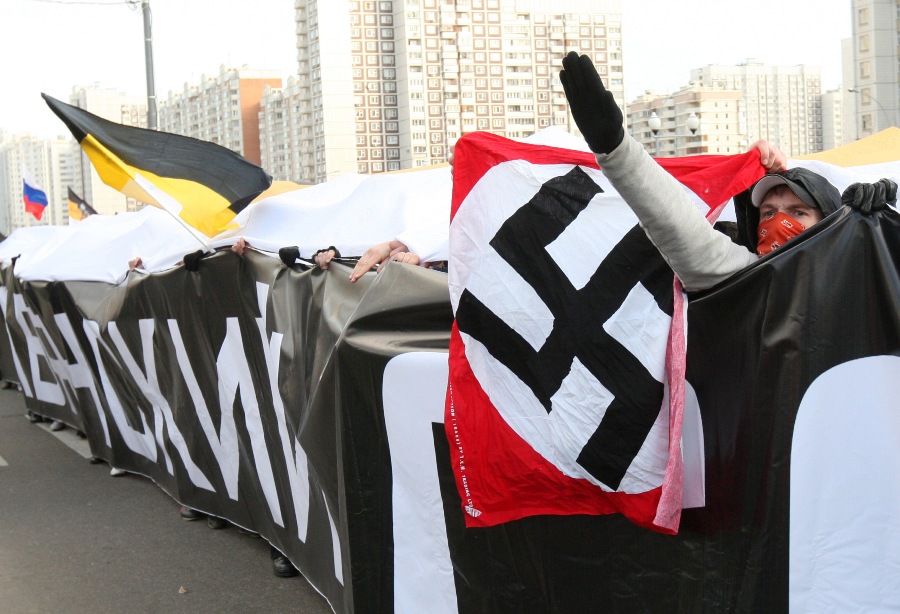
Many participants in the march covered their faces, presumably to hide their identities in photos like this one. Photo via RIA Novosti. Photograph by Ilya Pitalev.
This is an unpleasant story, but I wanted to share it because of what it shows about the current political climate in Moscow.
Since 2005, November 4 has been the Day of National Unity in Russia. Part of the new holiday tradition [1] is a massive “Russian March” in which nationalists and other far-right groups gather and air their views, including among other things xenophobia, anti-immigrant and anti-LGBT sentiment. Reports of this year’s march included word that some participants had even waved around Nazi-style swastika flags. Some of the activists I’ve been in contact with had organized an anti-fascism rally to show that was an alternative to the ideology expressed by the Russian March. I’d gotten word the day before that we would meet up in the center of the metro station at 3:30 for the 4:00 rally. This is typical; for rallies and marches participants often gather in a nearby station beforehand to check in, adjust plans, and make sure everyone gets to the right location together.
I hadn’t been to this station before, so when I arrived a few minutes early I walked around, admiring it. The hall itself was all hard surfaces, gleaming polished stone. A series of wide pillars separated the center of the hall from the train platforms. I photographed the beautiful black-and-gray marble mosaics of Dostoyevsky’s most famous works. The station was nearly empty with less than a dozen people milling around waiting to meet friends. At the time I wasn’t paying attention, but afterward it would seem unusual that there were no police in the station. They’re almost always on patrol in stations near the center, especially on days when big marches are planned.
Continue reading →





